0
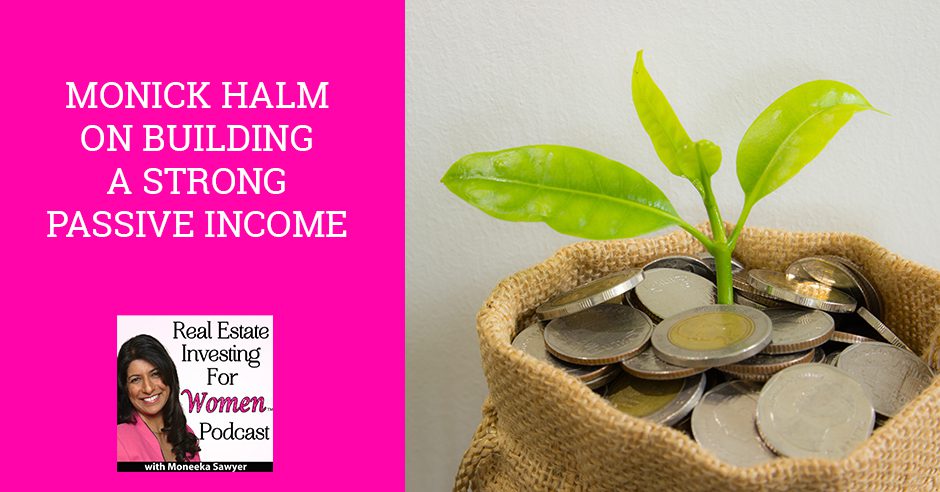
Building your finances is mostly dependent on your day job or business, but having a strong source of passive income is always a welcome addition to your books. Nothing beats having your money work for you, even if you are sleeping or relaxing at home. Moneeka Sawyer is joined once more by the Founder of Real Estate Investor Goddesses, Monick Halm, in dissecting how to make money through real estate syndication. Monick explains how this industry works, how to choose the people to collaborate with, the risks every realtor must be wary of, and how it can help lower tax bills.
—
Listen to the podcast here
Monick Halm On Building A Strong Passive Income
Real Estate Investing For Women
We are going to do things a little bit differently. I am bringing back to the show, Monick Halm. We’ve had her on the show before. I had an interesting conversation with one of you guys. The question was, “I have money in my retirement program. I cannot afford to lose it, but I want to have high returns because you’re 65 and you want to retire soon. You can’t afford to lose the money, but you want to get high returns with very low risk and you want to be very hands-off.” That was a tall order and I had no idea how to answer you, but I do have resources. Monick is the resource that I reached out to because I know that she talks about ways to invest with high returns, low risk, and hands-off.
I wanted her to share her expertise with you ladies. It was very funny because I got that one question and then in the same week, I got a very similar question from somebody else. It’s funny how things come in groupings. This is the topic that people want to hear about. I’m excited to present this to you. I’m going to have her introduce herself. I know you ladies have met her before because she’s been on the show.
I’ve also asked her to do a full presentation because I want to make sure that I’m not interrupting and she captures everything important for you ladies to know. It’s going to be a little different than normal. She’s doing a presentation and I will interrupt with some questions. The other thing is she is doing a slide show. If you’re a visual person and you want to see the slides, you can go to YouTube and look at Moneeka Sawyer or Real Estate Investing For Women, and then you’ll be able to find this. You can also go to Roku with Real Estate Investing 4 Women. Monick, welcome back to the show.
Thanks for having me back to talk about one of my favorite things. I love to invest in real estate. I found it a little bit by accident, which I’ll talk about that. I’m going to be talking about real estate syndication, how to passively invest in real estate, earn double-digit returns, and not have to deal with the 3Ts. The three are tenants, toilets and termites. This is a way of possibly investing in real estate that is high return and lower risk. Nothing is risk-free, I want to start by saying that. I can’t guarantee you returns. If anybody says that they will guarantee you a return, then run in the opposite direction and we will guarantee it. This is a relatively lower risk investment and I will share why.
Before we get going, I’m going to briefly introduce myself and why I talk about this. I am a real estate investor and a syndicator. Syndication is crowdfunding real estate. I bring groups of investors together to purchase real estate. I’ve been in real estate for many years. I have a little over 1,300 rental doors in seven states. I’ve raised over $35 million with my partners since 2016 for a real estate portfolio worth over $220 million. I’ve written the book, The Real Estate Investor Goddess Handbook, Wealth for Women: Conversations with the Team That Creates the Dream and Investing in Real Estate from $1 to $1 Million, which is available as a digital download for free on my website, REIGoddesses.com. I also have a podcast, Real Estate Investor Goddesses Podcast. I’m a real estate investment mentor, educator and coach. That’s me in a nutshell and a little bit of my background for why I’m talking about this.
First, let me briefly describe what is real estate syndication. In the simplest term, syndication is a structure or relationship between multiple investors pool money together to fund a project, real estate or otherwise. Investing in real estate syndication is investing in a real estate enterprise as a passive investor alongside multiple other investors. We crowdfund or bring together a group of investors that will passively invest. We’ll talk a little bit more about what all of those different roles are.
First, is syndication something for you? Maybe you can relate. If your real estate vision is big but you’re not sure if your bank account balance is big enough to fund it, then you might be interested in syndication. If you have some money set aside but you’d like to be able to leverage it and spread the risk, you don’t want all your eggs in one basket, then syndication might be a good fit for you. If your life is full and you’re not sure if you will have the time or other resources necessary to successfully invest, syndication could be a fit for you.
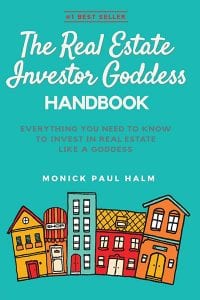
The Real Estate Investor Goddess Handbook: Everything You Need To Know To Invest In Real Estate Like A Goddess
If you fit any of those things, I understand because that’s where I was. I wanted to share my story, which you may relate to. Like Moneeka, I’m a first-generation American. My parents are from Haiti and I have super supportive parents who are always like, “You can be anything you want (as long as you’re a doctor, lawyer, professor, engineer).” I wasn’t into Maths and Sciences. I went to law school. I ended up at Columbia Law. On my slide, I have a picture of me in Japan, walking to my firm there. I was working for a big international law firm, partnership track, six-figure income. I checked all the happy immigrant parent boxes. I’ve done everything right.
I was miserable that at one point, I found myself in the emergency room. I remember the Tuesday morning when the doctor told me that my appendix had ruptured. I had to spend several days in the hospital. I ended up spending nine days in the hospital. He said I’d have at least 30 days afterward to recover. My first thought when he said that was, “Thank God, I don’t have to go to work for at least 30 days.” I had this incredible sense of relief.
It didn’t hit me until that second how unhappy and miserable I was. I couldn’t take it for granted that I was meant to be that unhappy, but it took that moment to give me clarity that it’s not normal, not good and not okay. I had done exactly what I was told. I had followed the path exactly and I was miserable and unhappy. I knew I had to find a different way. They don’t know what causes appendicitis, but I was sure it was stress from my job. That job was killing me and I had to find a different path. That was not an easy thing to do because I did the path that I was told would lead to success.
I did the path that my parents believed would lead to success. They didn’t know better. They taught me what they knew. I fell into real estate completely by accident. The only thing they had ever taught me was to buy my own home. That was what they knew about real estate. Moneeka, you were lucky because your parents knew about real estate investing. You were born into it but I was not. All my parents knew was get a job, trade your time for money, and buy a house that you live in but it gives you no money.
At least they said, “Buy a house.” I don’t know how many people whose parents didn’t even know that much. You had so much. It sounds like your parents adored you and wanted the best for you.
They’re great parents. I love my parents. They did the best they knew to do. They taught me the best they knew and were they very supportive.
I wanted to highlight something that you said which I think is valuable. Ladies, this is something to think about. We’re talking about real estate, but one of the things that Monick found in that hospital, and I know I’ve been here too, is how do we define success? She did everything right. I did the same thing. I did everything right. Our parents told us what success was going to look like and how we were going to get there because that’s the best that they could do. That’s what they knew. The way that they define success is different than how we define success. We have had to create a new life based on our vision of success. That’s an important key for you ladies to keep in mind. How are you defining success? I love that Monick was talking about, “This might be for you if.” If that is you, how are you defining success and what are the next steps? I want to highlight that success looks different for everybody.
For me, success is being able to do what you love with who you love when you want to do it. After having spent lots of time doing things that were killing my soul, that was what it felt like being a lawyer, and it’s killing my body too. After having spent that much time being miserable, having now the freedom to do work that I love and I’m passionate about. I have passive income streams and I don’t have to work if I don’t want to do. I get to make a difference, spend time on vacation, and do all of those things that I want to do when we’re allowed to leave the country, then I have freedom. That is success, but I didn’t start there. I got there by a series of happy accidents.
I was sharing that when I went to go buy my home. This was in 2005 towards the top of the last bubble. I live in Los Angeles, a very expensive market. You understand being in an inexpensive market. Those of you out there in the much cheaper markets can conceive of the prices that we have to pay. Even back in 2005, a starter home in a semi-decent neighborhood was upwards of $600,000 to $700,000. I had a low six-figure income. That was challenging for me. A friend of mine who was in a similar boat suggest that we buy a duplex together. He would live on one side, I’d live on the other side. The original plan was to get a property with two equal sides. We ended up finding this old craftsman that had a larger downstairs unit, a two-bedroom unit upstairs. It had a converted garage in the back with a one-bedroom. We ended up each taking a bedroom in the bigger unit. We’re renting out upstairs, our back house and even our basement. We started the house hack before I knew that was a thing. I went, “This is awesome.” People are paying our mortgage and I got tax benefits.
I met my husband. He had a duplex and we got a single-family rental together. After the market crash, we started to flip houses when houses were on sale. Houses are bound to be on sale again, so get ready. It’s going to be a very good time to be a real estate investor. By 2015, houses were not on sale. It was getting frustrating. Flipping houses is a short-term job. It’s like a short-term contract. You do it, fix it up, sell it at a profit, and then you have to start over. I wanted something more passive. I started to look for a fourplex, which at that time was the largest thing I could think of. In LA, you cannot find anything that cashflows. It was impossible because it was going to cost a fortune, and there was no money coming back from that. I ended up being introduced to this man that would become my mentor, Robert Helms, who is the host of the Real Estate Guys Radio podcast.
He’s done over a billion dollars’ worth of transactions and we had a mutual friend. When I was telling our mutual friend, Kyle, how frustrated I was. He said, “My friend Robert Helms is going to be in LA tomorrow. You should come and meet him.” I met him and he’s the one that changed everything. It’s one ten-minute conversation and it’s why I’m here talking to you. He is super nice. He asked what I was doing. I told him about the flipping and how that was getting challenging, and that I’m looking for fourplex in LA that would not cashflow. He said, “LA is a tough market. Live where you want to live, but invest where the numbers make sense.” That makes total sense after you hear it.
I always thought you had to invest where you could drive to your property, touch it, self-manage it. It never crossed my mind that I could invest outside of where I lived. That opened up the world to me. The other thing he said was, “You can buy that fourplex by yourself, but you’re limited to your own capital credit. Alternatively, you could bring a group of investors together and you get 100 or 200 units.” He started telling me about the benefits of that. My brain exploded right there. I was like, “That’s a thing? You could do that?” Everything in my body got chills. I’m like, “I want to do that.” That was very exciting for me to find out. I went home and told my husband that night, “There’s a thing called syndication. We need to learn how to do that.”
The Real Estate Guys, Robert Helms and Russell Gray were teaching a seminar on it in January 2016. We went to that seminar and signed up with their program. We met Brad Sumrok who was our apartment syndication mentor. We signed up with him. We went to tons of different events throughout that year and since to learn how to do that. I invest over $60,000 just to hear that education but it paid off. We ended up syndicating and getting into a 109-unit mobile home park in North Carolina. We did 318 units in Dallas, 514 units in Atlanta, and then 50 to 51-unit townhome community, and then 77-unit apartment community in Albuquerque all in that first year. Over 1,000 units in that first year through syndication, through bringing investors together.
You take things slowly, don’t you? Are you saying only two of those were passive?

Passive Income: Syndication allows you to spread the risk because money is not all unused.
We syndicated the mobile home park and the two in Albuquerque. We still passively invest in things as well as actively invest. There are benefits to both which we’ll talk about. Other than the mobile home park, all of those things have been sold. We have new ones. We have a little over 1,300 in different asset classes, different states. It’s allowed us to diversify, to scale and grow in a quantum leap and ways that I had never imagined possible. I’m very passionate about it. I have a picture of a slide. I’m wearing a Tiara, but I’m surrounded by a bunch of men, which was the mastermind that I was in.
Being surrounded by many men in that field. First of all, 90% of our investors were men. I had been working with women, but it came as this divine download to bring women into this game, especially invite them into syndication. I created Real Estate Investor Goddesses to bring women into this game. My mission of helping one million women create financial freedom through real estate investing came as this divine download, not the how of it. I’m still figuring out the how. I’m ways from that, but the what of it has come. It’s been great. Little words have been going out. I’m very passionate about getting more women into this wealth-building lucrative game.
One of the ways that’s great for women with syndication is because a lot of us are busy. We have jobs where we have to homeschool. We have parents to take care of, kids to take care of, and all of this stuff. This is a way of being able to get into real estate that is passive, that doesn’t take time past vetting. Some of you might be interested in being on the other side of it too, where you get to bring groups of investors together. You can benefit a lot by being on the active side, which is the side I mostly play on. Either way, there are a lot of benefits. Why would you want to do that?
It allows you to buy more than what you can afford by yourself. As a passive investor, you get to leverage OPM, Other People’s Money. It’s not just your money, it’s the money of all the other investors, and often a bank too. We usually get financing, as well as all of these investors that come in. You’re able to leverage OPM to get something much bigger than what you could afford by yourself. You also get to leverage OPT, Other People’s Time because somebody else is going off, finding the deal, putting it together, and bringing all the investors together. You have to vet the deal and then send in your money and wait for it to come back with friends. It allows you to spread the risk because it’s not all on you.
The risk is spread. Also as a passive investor, you have very little to no liability. You spread the wealth. As a syndicator, I get to create an opportunity for many people to benefit. As a passive investor, you get all the benefits of being a real estate investor like the tax benefits and otherwise without the work. With a real estate syndication, there are a lot of benefits. It gives you the benefits of passive cashflow. You get a share of the monthly cashflow. You get a share of equity at the end when we sell. You get federal tax benefits. A lot of people don’t realize that. You have the assumption that the more you make, the more you pay in taxes. That’s what we’re told.
Higher-income, more taxes except when it comes to real estate investing because of the way it’s structured in the tax code. You often end up paying less. A lot of people will get into real estate, especially when they have businesses and they’re successful. A good stabby CPA will say, “You should start investing in real estate because you’re paying too much in taxes.” Even though you’re making money with your real estate, because of the way real estate looks like a loss for tax purposes, you’ll pay less.
I have a very good friend. He’s a successful businessman. He found himself one year owing $500,000 to the IRS. He had always assumed, “The more you make, the more you pay in taxes.” He was very successful with multimillion-dollar businesses. He found out about real estate. He bought an apartment building in Memphis. It was an apartment that he was making six figures a year of income, but it brought his tax bill from $500,000 to $0. He was making more money. Not only did he make money, but he saved on the money that did not have to go to Uncle Sam. It’s not just what you make, it’s what’s you get to keep. In real estate investing, even as passive investors, you get to keep more.
I’ve said on this show many times that no matter how someone became rich, the rich always invest in real estate. That’s where they make the majority of their money. They make a huge amount of money in real estate. They also save a lot of money in real estate, which they can then grow in other ways, whether it’s in their business or real estate. Monick has given you a cool breakdown of why the rich invest in real estate. What’s cool about real estate is that you don’t have to be rich. This is available to everybody, especially here in the United States. This is the most amazing country that way because this is not through elsewhere. The government supports everybody from a single mom, all the way to the richest person on the planet and investing in real estate. We’re supported to do that. It helps us to grow well, and it helps to lower our tax bill. There are many good reasons to invest in real estate.
The government wants you to invest in real estate. That’s why they give these incentives in the Tax Code. It’s to get more people to invest in real estate. There’s a book called The Color Of Law. It started in the 1940s after World War II. They thought that if people owned real estate, they would be capitalists but they would not be communists. It was a way of helping stop communism. Whatever the reason, it’s a good thing if you’re a real estate investor. It helps you out. People who have a lot of money shift from being about income to being about wealth preservation. Real estate helps you preserve wealth, not just because it appreciates some of these other benefits, but because of the enormous tax benefits that help you not just save money off of your real estate income, but it helps you pay less on more of your income. It is beneficial tax-wise.
I was talking about you can leverage OPM, Other People’s Money and Other People’s Time. When you’re in syndication, you’re able to do much bigger properties in their economies of scale and leverage in that way. Retirement savings came up because people are saying, “I have this money in my retirement account. I’d like to be able to find investments that make sense, that are lucrative, that are relatively safe, and with self-directed retirement accounts.” Not the account that your work’s going to put you in normally, which gives you a very limited menu of things that you can invest in some mutual funds and bonds.
It’s like this little menu, but if you can self-direct your money, then you can put it into real estate and get better returns. Also, with appreciation. I start with real estate. You get appreciation over time. Properties tend to go up in value, but you can also force appreciation by doing targeted rehab, which is what we do with syndication. We have a business plan and we buy property. We have a plan to add value to that property and appreciate the value. It’s worth more generally after a certain number of years. We’ll sell and be able to recapture that. Even on paper, as the value of the building grows so does your net worth. It allows you to leave a legacy, which I know for many of us, one of the main reasons why we want to do this. Real estate since time immemorial has been the main way that people have built, preserved and passed down wealth.
It remains the same way. That’s one of the best ways to build and leave a legacy, and it’s a feel-good business. It’s a win-win. I only invest in ways in which I can leave a property in a community better than we found it. Our syndication is a focus and it feels good. It’s a wealth-building opportunity for everyone touched by our deals. That’s why I love it. Those are the benefits. Think about what are the benefits for you? What’s your why behind real estate investing and syndication? Depending on what are the whys that are important to you, there are certain deals that will give you more of those benefits or less. Tap into your why behind them.
What types of properties can be syndicated? Anything can be syndicated. You can syndicate debt. Sometimes, it’ll be a fixed return. It’s debt and a loan that we’re syndicating. You can syndicate equity. Ownership’s take in a property. You can syndicate raw land, single-family, residential properties. Syndication is for larger commercial projects. There are a lot of expensive legal works that has to be done. I’ll talk a little bit more later about the legal ramifications of this. It’s not something that I would recommend you to go out and ask a bunch of people to give you money for a deal.
It’s governed under the Securities and Exchange Commission and it can be pricey to put one of these together. The deal has to be large enough to justify the legal costs of putting together syndication. You won’t find a single-family residential property syndicated usually unless it’s going to be used for something like a residential assisted living facility. A facility where people are paying upwards of $4,000 a bed to be there and it’s a very high cashflowing business. You’d see those get syndicated, otherwise, it’s just a house to flip. You normally won’t see that, but they could be if somebody wanted to do that. Multifamily apartment complexes are common, office space, retail and industrial can be syndicated.

Passive Income: As a passive investor, you get all the benefits of being a real estate investor without doing all the work.
Who’s involved in the syndication? You’re going to hear the terms syndicator sponsor, active investor, general partner. Those are all used interchangeably. That is to describe the individual, company or team that’s finding, acquiring and managing the real estate. They’re going to have a history of real estate experience. They should. If they don’t, do not do this with them. They have to have extreme real estate experience, and the ability to underwrite and do due diligence on the properties. The active investors are the ones doing the work. There are joint venture equity partners. Sometimes that’s my role in deals. We have a group of investors and we’re not on the operation side, but are bringing in funds for the investment. We’re connecting our investors to operators that were part of the sponsorship team. With JV or equity partners, it might help with financing, reporting communications and tax documentation.
Last but not least, there are passive investors, sometimes called limited partners. Those are individuals who will invest in the syndication. They own a percentage of the real estate as a result. If it’s an equity deal, they’ll have a percentage. They’ll be part of the loan if it’s debt. You get all the benefits of property ownership, not involved with acquiring the property, arranging to finance or doing any of the day-to-day management. They cannot be. Think of it more like if you’re buying stock in Apple. You own a piece of Apple when you have a piece of their stock. If they do dividends, then you would get your dividends. Otherwise, you have that ownership stake, but you’re not going to call the company and say, “I want you to change this feature on the iPhone.”
You could just like our passive investors can call us and tell us what they’d like to change, but in terms of like, who’s managing it, who gets to decide, when to sell, what to do, who’s the team, that’s on the active investor side. I’m going to share a typical example of a 100-unit apartment building. I’m going to round out the numbers to make this easier to understand. This is not a guarantee of results, but this is not atypical for syndication. It’s fairly typical in terms of returns.
This one was a deal that was a $5 million purchase price. The rehab budget was $500,000. We were buying this apartment building. We’re fixing up the units and getting them nicer so we could raise the rents to market rates because it was underperforming. We got a loan, 75%, $4.1 million to $5 million. The interest rate was 5% at that time. It’s lower now. We had a down payment of 1.375%, closing costs of $200,000 and the cash starts with the $75,000. We were raising $1.6 million to $5 million. Rounded at 33 investors at $50,000 each.
I won’t go through all of the various numbers. I’ll highlight the end result for the readers. After the total cashflow, the whole profit was $51,575 after five years. More or less doubled the money of the investor after five years. About $23,500 was in cashflow. Sales proceeds were close to $78,000. That was the profit. Not bad for something that is passive. That is not atypical for these types of syndications. On the active investor side, that also invest $50,000, the same deals as an active investor that you get a share of the cashflow and the acquisition fee. There’s also an asset management fee, and you get a share of the equity and cashflow for putting together the deal, and then there are fees for managing it.
In this case, as an active investor, we’ll also put in $50,000, which had the same profit that the other equity investors did, $51,575. There’s a 3% acquisition fee of $49,500, 1.5% asset management fee, $60,257, 15% deal sponsor equity share of $116,700. The total sponsorship return was $287,032 on a $50,000 and sweat equity. There’s a lot of sweat equity in that, but that’s the return. If there was a team doing it, then all the acquisition fee has some management deal sponsor equity. It would be split amongst the team members. You can get three times or more of the returns by being on the active side and doing the deal. It can be very profitable either way. Does this sound like something you might like to try?
One of the nice things about it as a passive investor, you have to vet the deal and then wait for it to come back with friends. For those of you who are interested in being on the active side, do not try to do syndication without a qualified securities attorney. You could win yourself a hefty penalty, an orange jumpsuit, and some jail time. You want free housing but not that way. Make sure you know what you were doing when you take on other people’s money. You can’t advertise an opportunity there. It’s very regulated in terms of who can invest with you and how. Generally, it’s going to be people with whom you have a substantial pre-existing relationship, and they have to be sophisticated enough to understand the deal, or you’re only dealing with accredited investors.
For those of you who don’t know what an accredited investor is, some people think it’s like, “I’m not accredited. I haven’t taken the test. I don’t have a certificate.” There’s no certificate nor test. You qualify either through your income or through your net worth. If you have an income as an individual of $200,000, or as a married couple of $300,000 per year, you’ve had it for at least two years with a reasonable expectation that you will in the subsequent year, you are an accredited investor. If you have a net worth of $1 million or more, not including your primary residence, then you are an accredited investor. You are part of the 8% only of the population who are. Most people do not fall under that. If you do, you’re an accredited investor. That will allow you to take advantage of more of these types of opportunities.
Some of them are for accredited investors only. Some are for both, but you do have to have a preexisting relationship with the person bringing the deal. If you are trying to syndicate, then you need to understand when you can do and take accredited investors or when and how you can take people. If somebody is talking about this on Facebook, unless it’s accredited investors only, they could do that. You can’t just take anyone’s money, even if they want to invest it with you. I’ve had certain deals where we had to have that pre-existing relationship. They come and I’ve met them after I have already the deal. They’re like, “I’ve wanted to put money into it.” I’m like, “I wish I could take your money but I can’t. We’re going to get to know each other now. Next time you could if you feel like it, but I can’t now.”
If you want to find out more about these passive investing strategies, we have an investor club at Real Estate Investor Goddesses. I created this club because I wanted to get more women in knowing about these types of opportunities. The investor club doesn’t cost anything to be part of it, and you’re not obligated to do anything, but it allows us to get into that pre-existing relationship, and you then get access. A lot of people are like, “How do you find out about this? How do you get access?” You have to get into a relationship with a syndicator. I deliberately set out to get more women into this game because when I started, 90% of our investors were men. Now, I’m happy to say 90%-plus of our investors are women. I love being able to get more women into this because they’re great investments. I’ve done better on my passive investments than I ever could have done investing in LA or these expensive markets where I was doing all the work. They can be lucrative.
Let me talk a little bit about the risk for a minute because there is a risk. Here’s where the biggest risks are and how to mitigate the risk. They can be great opportunities. It’s important that you invest with the right people because a team is everything with real estate. There are three things to look at in order of importance. First is the team, next is the market, and next is the property and the plan. It’s in that order of importance. Your team is very important. You want a team that has a good track record and trustworthy. A good track record does not mean they’ve never lost money. Robert Helms would say that he would not invest with anyone who had not lost money before. He wanted to invest with somebody who had lost money and stayed in the game. He wanted to know, what happened when it went bad? How do they deal with it? Are they still playing in the game?
Things happen like in 2008. It was very bad for lots of people. There might be some deals that people bought, but not quite as right in 2019. It might not be doing so well right now. How are they handling it? How are they going to get through it? That tells a lot about somebody. It’s not necessarily that people have a perfect as they’ve never had a miss. That’s not a bad thing, but you want to know that they’ve been able to handle it. They have a long track record. They know what they’re doing. They’re trustworthy, following the rules and doing it right.
The team is important, then the market. Where are they investing? You start to look at their business plan. What is the property they’re looking at, and some of the assumptions they’re making? Some people make some assumptions like I like to be underpromised and overdelivered, but not everyone has that. How are they underwriting? Those are the things. You’re going to want to be able to vet the people or get the deals. Make sure it makes sense for you. If it does, then you raise your hand and say, “I’m in.” You invest and wait for your money to come back with friends. That’s how you do it. It’s a good deal. A lot of these deals are because we tend to buy properties that are ready cashflowing. They’re already stabilized. They’ll plan to increase cashflow, but when things tend to go bad, you may not meet the mark that you wanted to, but it’s unlikely that you’ll lose your money. That’s why they’re great investments.
Are most of your projects five years?

Passive Income: Realtors save a lot of money in real estate, which they can grow again in other ways, whether in their business or more real estate.
Five years is a fairly typical polled plan period. For the past few years, we were getting out more quickly because of the way the market was going. We’re paying more money for the same amount of income. It became a very good time to be a seller. I liked to be a seller when it’s a seller’s market and a buyer when it’s a buyer’s market. We started to sell because we could hit our returns more quickly. If you hit your number quickly, it’s better if I could get somebody 100% return in 2.5 years versus 5. We were selling more quickly when it made sense.
Now, looking at where the market is going, it might be closer to our five-year period or it might not make sense to sell in five years, and we may hold on for 1 or 2 years. As the sponsors, we’re going to do what’s best for our investors and we’ll sell when it makes the most sense. If it doesn’t make sense to sell it, we’re going to sell it down at a loss, then we hold off because we’re always cashflowing. That five-year plan might become a seven-year plan depending on what’s happening in the economy. Sometimes it’s a 2 or 3-year plan if that makes sense.
Is there a particular class that you invest in?
Most of our investments are in class-B multifamily. We’re also doing a lot of industrial. We’re doing more industrial right now. There’s a lot of uncertainty in the rental market because more people are losing jobs and not able to work. That’s harder, but industrial is one asset class that has been least affected by what’s going on. One of the things that we’re doing a lot of are types of deals called Sale-Leaseback. It’s a company that has a facility. In 2020, we did a frozen pie company and we ended up getting a baby food company. We have a couple of others. They are business that are doing super well in this crazy economy. They have these facilities that they had built and they wanted to get equity out of them.
They couldn’t refinance to get the equity that they needed. They’re selling it, but then they lease it right back as our tenants with these triple net leases. What’s great about triple net lease is they tend to be very long. These are twenty-year leases that we have with our sellers/new tenants. Not only do they pay rent, but they also pay property taxes, insurance, and all of the maintenance. They take care of all of the expenses with the exception of any debt service. If we have loans on the properties, they’re not going to pay for that, but all other expenses they cover. There are no surprises.
We have built-in rent increases in the leases as well year over year. You know what the income’s going to be, what the expenses are going to be. The plan is we sell them to institutional buyers after 3 to 5 years, and very similar returns to multifamily, cash-on-cash returns in 8% to 10% range with cumulative annualized returns in the high teens, low twenties. They liked them. They feel safer and more stable, especially in this type of climate. We’ve been doing these.
How do you find those?
We have partners that have been doing this for close to two decades. They’re one of few people who do this. It’s a very niche segment of the market, which is great. I don’t like going where the herds go. I try to look away from where the herds go, into places that are a little more open pasture. These companies will contact our partners. The big part of the due diligence on these is on the company to make sure that it’s a company that’s going to last a long time. The good thing about these long triple net leases is you have a tenant in there and it’s super easy. There is almost no property management and very little to do. If you do lose a tenant, it can take a while. Sometimes months or a year or more to find a replacement. The important thing is to have a steady tenant that’s not going to go anywhere. We do a lot of due diligence on those tenants to make sure the seller/tenants, the company is solid, and then we do the deal.
How big is a deal like this usually? How many investors are you looking for and how often do you do these?
They will vary. We’ve done syndications where we’ve raised as little as $500,000 and as high as $8 million. It’ll depend on the raise. A fairly typical minimum investment is $50,000. We have had somewhere that was $100,000 minimum, and we’ve had a couple where it was a $25,000 minimum. Generally, $50,000 is a fairly typical minimum.
How many of these do you do per year? How often can someone get into this?
Our goal in 2020 has been to do two a quarter, but because of COVID, we’re about to do our fourth one for the year.
At least, they’re coming through. That was amazing. There’s so much information. That was super helpful. If you had one tip to give my ladies about investing in syndication, what would you say?
If you want to do this, then you need to get on the list of people who do syndications. Connect with people. We have our women’s intuition. Tap into that as well as you’re learning. Find people that you think you know. Get to know them who you can like, trust and can do a good job with syndication. If you’re passively investing, that’s the only way you’re going to get access is to get into relationship with people who have these types of deals. This is part of the conversation I have when people apply to get into the investor club. We can help them over the phone.
I get clarity on their why. Why do they want to do this? Depending on their why, different investments will be a better fit for them or not. It’s important to tap into your why. It’s important to know what your resources are, what you can invest, where your funds are, and have that clarity about where your money is, and when you need it. If it’s money that you’re going to need in 1 or 2 years, if you’re 65 and you want your money in two years, a deal where your mind’s going to be locked up for five years is probably not the best fit for you.
If you’re going to need it that quickly, there will be cash. If you’re okay with the cashflow or something happens, then that’s fine. It could be 5 or 7 years, depending on what’s going on. It could be less, but it could be more. You need to get a sense of when you’re going to need the principal back and make sure that it all makes sense for you. We would have that conversation on our call so I could get clarity and make sure that you’re getting into deals that make sense for you.

Passive Income: You can’t just take anyone’s money when syndicating, even if they really want to invest it with you.
Why don’t you tell everybody how they can get in touch with you?
To join the investor club and get into a one-on-one passive investing strategy session with me, ladies can go to REIGoddesses.com, and gents go to Vip-Assets.com. When you go on there, you’ll understand.
That’s helpful. Thank you for coming back to the show and sharing all this information with us. It’s valuable as always.
It was my pleasure. Thank you for having me.
Ladies, thank you for joining Monick and I for this conversation. I hope it was helpful. I know we did a little bit of a different format, but I hope you got a lot of great information. Contact Monick if this is a strategy that you’re interested in. I look forward to seeing you next episode. Until then, remember goals without action are just dreams. Get out there, take action, and create the life your heart deeply desires. I’ll see you soon. Bye.
Important Links
About Monick Halm

Monick Halm is an expert, educator and advocate for women real estate investors, with a personal mission to help 1 million women create financial freedom through real estate.
She is herself a real estate investor, syndicator, and developer with over 15 years of real estate investing experience in single-family rentals, multi-family residential, mobile home parks, and flipping. Her current investment focus is on syndicating under-performing residential multi-family apartment buildings and mobile home parks. She delights in adding value for her investors and tenants through improved management and the targeted remodeling and rehabbing of properties. Together with her investors, she owns over 1300 rental doors.
She is also the founder of Real Estate Investor Goddesses, an online community and educational platform for women real estate investors. She is the #1 bestselling author of The Real Estate Investor Goddesses Handbook and the host of the Real Estate Investor Goddesses Podcast.
Prior to becoming a real estate investor, Monick Halm practiced corporate litigation at Morrison & Foerster, LLP and Gibson, Dunn & Crutcher, LLP in Los Angeles. She earned her Juris Doctorate degree from Columbia Law School in New York. She is also a certified interior designer, feng shui expert, #1 bestselling author, keynote speaker, certified NLP and Money Mastery coach, and former co-owner and Chief Creative Officer of the Checklist Parent, mobile app and parent community. She is passionate about real estate, design, and helping women to thrive.
Love the show? Subscribe, rate, review, and share!
Join the Real Estate Investing for Women Community today:

Moneeka Sawyer is often described as one of the most blissful people you will ever meet. She has been investing in Real Estate for over 20 years, so has been through all the different cycles of the market. Still, she has turned $10,000 into over $5,000,000, working only 5-10 hours per MONTH with very little stress.
While building her multi-million dollar business, she has traveled to over 55 countries, dances every single day, supports causes that are important to her, and spends lots of time with her husband of over 20 years.
She is the international best-selling author of the multiple award-winning books “Choose Bliss: The Power and Practice of Joy and Contentment” and “Real Estate Investing for Women: Expert Conversations to Increase Wealth and Happiness the Blissful Way.”
Moneeka has been featured on stages including Carnegie Hall and Nasdaq, radio, podcasts such as Achieve Your Goals with Hal Elrod, and TV stations including ABC, CBS, FOX, and the CW, impacting over 150 million people.

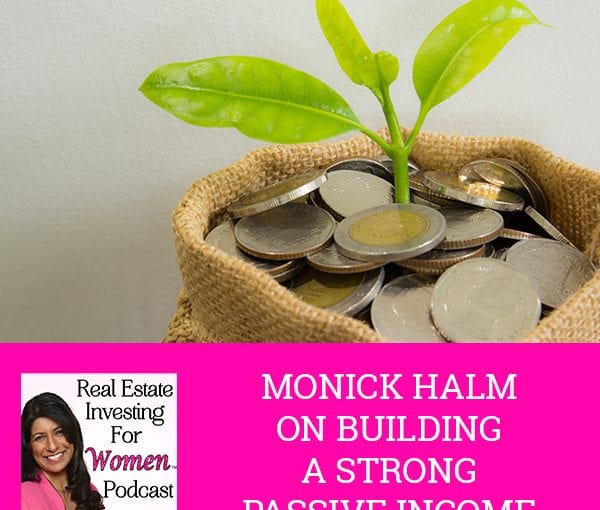







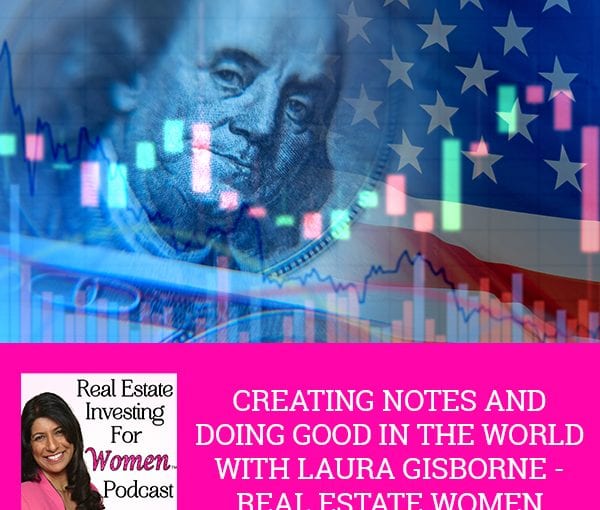
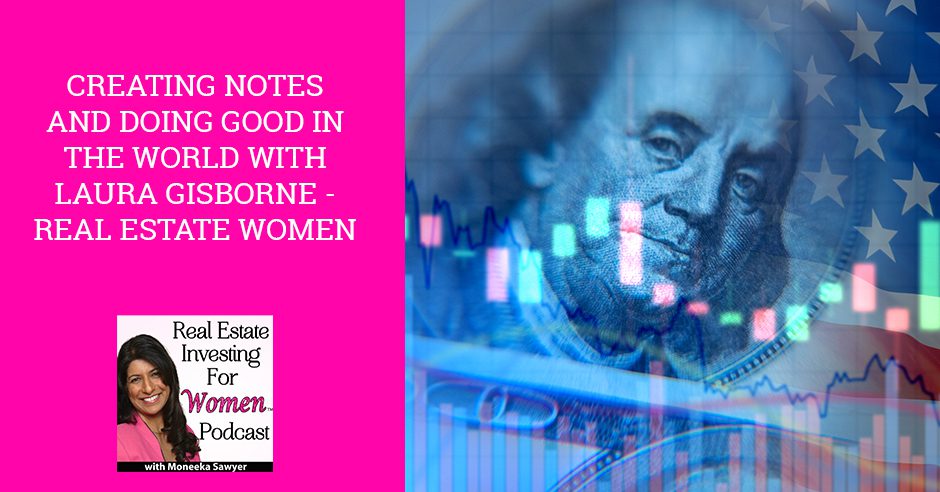
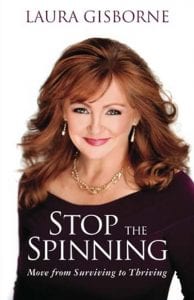



![[Customer Convo] Choosing Bliss, A New Giving Thanks Practice, And Real Estate With Chaitra Rai - Real Estate Women REW 34 | Choosing Bliss](https://blissfulinvestor.com/wp-content/uploads/2020/11/34REWsquare-600x510.jpg)
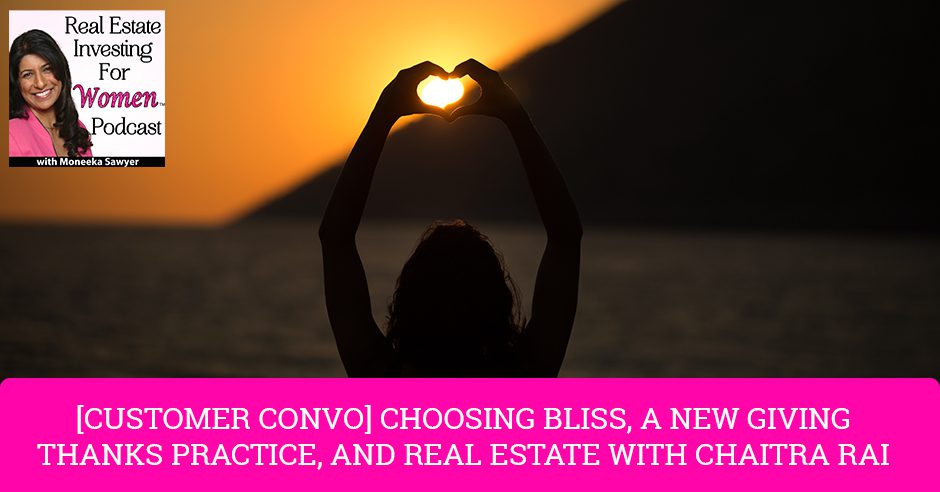



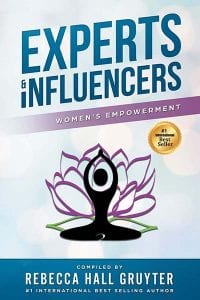
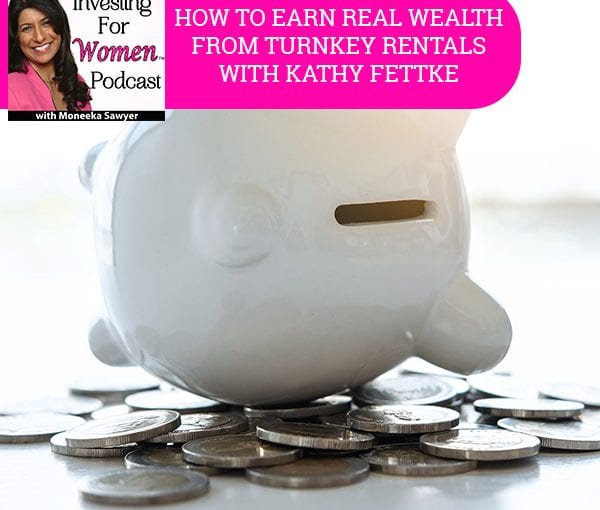
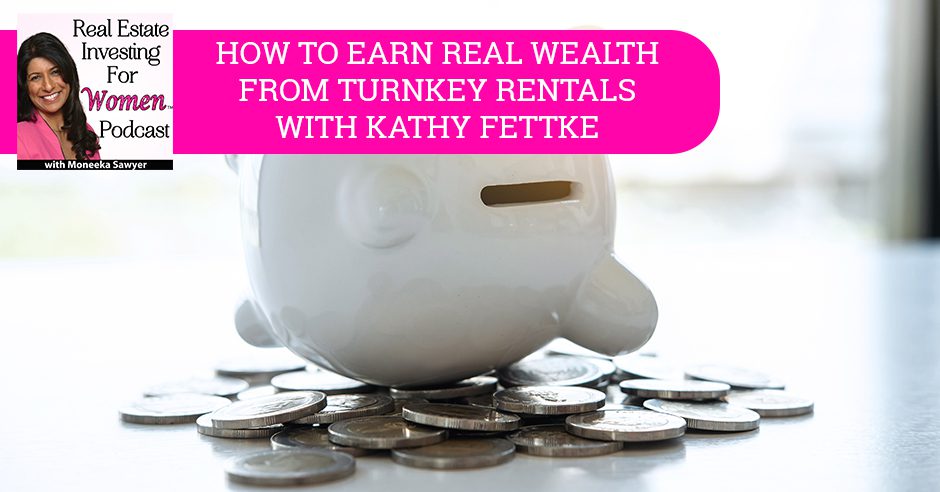



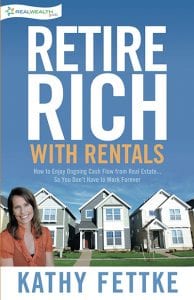
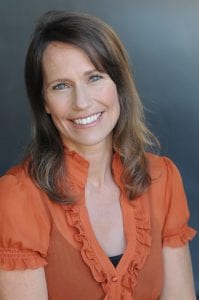 Kathy Fettke helps people build and secure wealth through cash flowing real estate. She is a real estate developer, fund manager, and educator.
Kathy Fettke helps people build and secure wealth through cash flowing real estate. She is a real estate developer, fund manager, and educator.